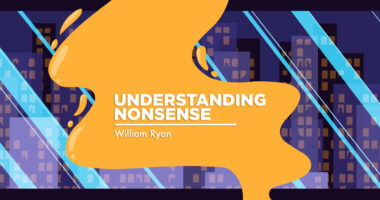Anxiety Due to COVID-19 Lower in Children With CF Than Their Peers

The school closures, at-home confinements and other safety measures necessitated by the COVID-19 pandemic have caused less anxiety among children with cystic fibrosis (CF) than age-matched peers without the disease, a survey study in Turkey found.
Children and teenagers with CF “seem to show more resilience in coping with the pandemic,” according to its researchers.
The study, “The Effect of COVID-19 on Anxiety Levels of Children with CF and Healthy Peers,” was published in the journal Pediatrics International.
COVID-19 has had incalculable affects on the world, both through the disease’s direct impact and the pandemic’s ripple effects on society as a whole. Among its consequences has been a substantial increase in reports of mental health problems, like anxiety and depression.
A chronic disease like CF is known to take a toll on a person’s mental health, and studies show high rates of anxiety and depression among CF patients. How the pandemic itself has affected their mental health and how patients’ responses might differ from people without CF, however, is just beginning to be known.
Researchers in Turkey surveyed children and adolescents, ages 7 to 18, with CF being followed at their care center, and a similar group — classmates, friends, neighbors — without the disease serving as controls.
Their survey focused on questions about family environment, interpersonal relationships, self-care strategies, and psychological reactions to the pandemic. Two slightly different questionnaires were administered, one tailored to younger children and one for adolescents. Responses were collected via telephone calls under parental supervision between April 30 and May 15, 2020, “at which time COVID-19 started to peak in our country” and measures like online-only education were mandated, the researchers noted.
Questionnaires were completed by 132 CF children (mean age, 11.57; 41.7% girls), and 135 peers (mean age, 11.76; 60% girls). The socioeconomic status was similar across both groups.
Compared to their healthy peers, children and adolescents with CF scored significantly lower for anxiety about the COVID-19 pandemic.
“Almost 50% of the children in control group and 33% of the CF patients were feeling anxious about the COVID-19 pandemic,” the researchers wrote.
Scores for anxiety due to concerns for family members contracting COVID or with school closings were also lower in the CF group relative to their peers.
“Feeling upset for school closure, worries for a family member having the risk of COVID-19 infection, feeling sad, lonely or reluctant to have playful time, overthinking about pandemic are all more common psychological reactions regarding pandemic in control group compared to CF patients,” the team wrote.
Healthy children, in contrast, were “more overthinking about the pandemic, and feeling sad, lonely or reluctant to have playful time.”
Several possible explanations exist for these differences, the researchers said. For example, they noted that steps to minimize the risk of spreading disease, like wearing masks or maintaining physical distance, were common among CF patients long before the pandemic, so their sudden broad application was likely less stressful to them.
The pandemic might also have been a first introduction to the fear of becoming seriously ill for children without a chronic disease, while those with CF tend to learn to deal with such fear at a young age.
Among the CF group, children more than teenagers expressed significantly more anxious about the pandemic, showed appetite changes, were upset with school closures, and unwilling to do homework or in engage anxiety-easing activities. The researchers recommended direct and age-appropriate conversations about COVID-19 with younger children to help address these anxieties.
Nearly half of the children — in both groups — reported appetite changes, and more than 1 in 10 had sleep problems. These findings indicate a general need for psychological support for younger children during this stressful time, the researchers emphasized.
Overall, findings suggest “that CF patients had lower anxiety symptoms and they were more resilient in coping during [the] pandemic than their healthy peers,” the team concluded.
Nonetheless, “appropriate psychological support should be provided to them and resilience strategies in coping with the pandemic should be nurtured.”








